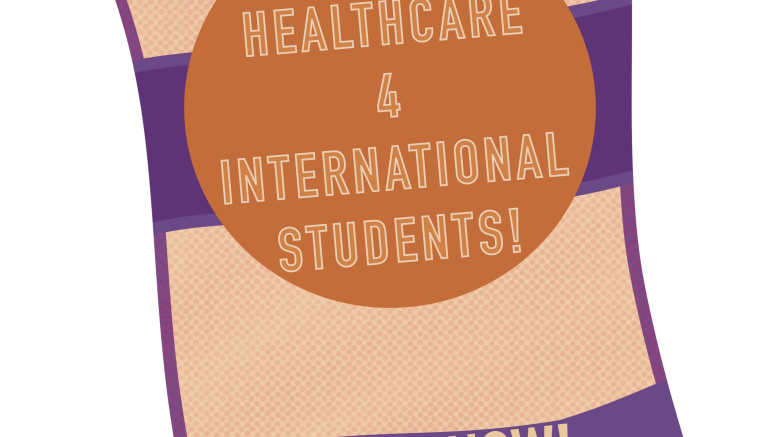The results are in, and UMSU’s newly elected executive team for 2024-25 has been decided.
Among the elects, Divya Sharma, the incoming president and incumbent vice president community engagement, campaigned on the goal of reinstating free international student health care.
In a North American political context, conversations around health care certainly point to the need for better structural support that acknowledges the difficulties faced by those who are constantly shoved to the sides of society, living with minimum rights and meeting bare minimum needs.
Compared to our neighbouring country, the U.S., we have a slightly better, publicly-funded health care system in Canada, where some roles and responsibilities for services are shared between provincial and territorial governments and the federal government.
However, the health-care system in North America has been a topic of debate for a long time, as it fails to provide adequate support to many minorities and marginalized groups. An August 2021 report by The Commonwealth Fund compared health care in the U.S. to 10 other high-income countries, with Canada ranking 10th and the US ranking 11th. Norway, the Netherlands and Australia ranked better in five categories, including access to care and administrative efficiency.
We need to have serious conversations about why Canada has ranked so low and what that means for students and others who belong to the precariat class.
In 2018, the Manitoba Progressive Conservative government cut universal health coverage for international students to save approximately $3.1 million. Since then, international students have had to pay $1,032 annually to replace the coverage.
This move has put international students at a disadvantage, as they are already paying more than double the tuition fees that domestic students pay and living far from their home countries, often without the support of a community in the country they have immigrated to. While the Manitoba New Democratic Party vowed to reinstate international student health care coverage, solid actions have yet to be taken.
UMSU’s new executive team, and their promises to counter the rescindment of health care for international students, bear so much importance in the political contexts of Manitoba and Canada. COVID-19 has posed unprecedented threats to the medical care system globally, and we have so much to do to be able to build a system that can accommodate needs that go beyond the expected limit.
Part of preparing for things like that is paying attention and care to the needs of the precariat class. Through the Manitoba International Student Health Plan, students have access to primary health coverage, such as seeing a physician at a clinic or hospital. However, efficient health care includes access to a community that ensures care and love.
When I first came to Canada, I registered in U of M’s International Centre Welcome Mentors program, through which I found my mentor, who is now one of my close friends. My mentor, having grown up in Winnipeg, knew everything about the city and the university. She helped me adjust to the environment and gave me strong support during my initial days here. I was welcomed with a bag full of toques, scarves and other winter essentials. She also gave me guidance on finding doctors and accessing medical care if need be.
While this is certainly something not every mentor might need to do, I appreciate having support systems like this, organized by the university. My example shows what we can do as all of us students are in great need of care that is inclusive of both physical and mental well-being.
I’m a firm believer that student unions can contribute towards the betterment of society and that they should be actively partaking in the conversations around student welfare. Unions have the potential to build communities, provide care and implement structural changes. They address concerns that the government overlooks.
If we wish to be part of an institution and union that truly cares about its students, we must keep having conversations about equal rights for all, starting with health care. These conversations should include the political history of the country that has systemically reduced access to health care for Indigenous people. The medical practices influenced by anti-Indigenous racism and added systemic disadvantages have caused Indigenous people to be unable to access decent health care.
This problem, since it is rooted in a colonial and capitalist system, extends to others who are directly affected by the injustices, like the 2SLGBTQIA+ community, racialized communities and international students.
UMSU should acknowledge that these conversations are central to making health care accessible for everyone.




